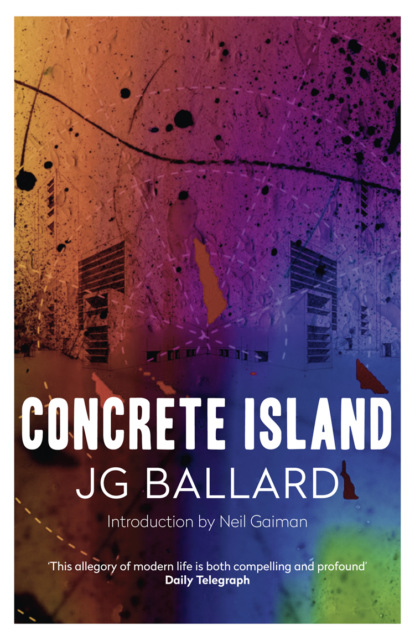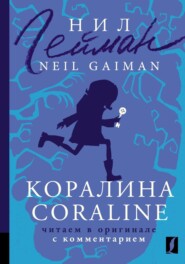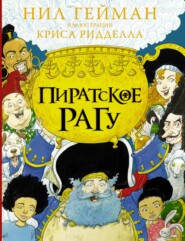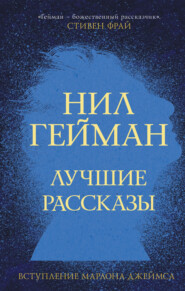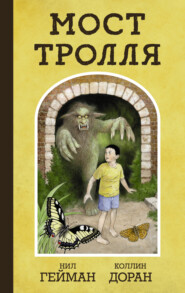По всем вопросам обращайтесь на: info@litportal.ru
(©) 2003-2024.
✖
Concrete Island
Настройки чтения
Размер шрифта
Высота строк
Поля
Maitland went back to the Jaguar, steering the coarse grass out of the way with his hands. Even this small exertion flushed his face and chest. He looked round for the last time, with the deliberate gaze of a man inspecting an unhappy terrain he is about to leave for ever. Still shaken by the crash, he was already aware of the bruises across his thighs and chest. The impact had hurled him like a broken punch-bag on to the steering wheel – the second collision, as safety engineers modestly termed it. Calming himself, he leaned against the Jaguar's trunk; he wanted to fix in his mind this place of wild grass and abandoned cars where he had very nearly lost his life.
Shielding his eyes from the sunlight, Maitland saw that he had crashed into a small traffic island, some two hundred yards long and triangular in shape, that lay in the waste ground between three converging motorway routes. The apex of the island pointed towards the west and the declining sun, whose warm light lay over the distant television studios at White City. The base was formed by the southbound overpass that swept past seventy feet above the ground. Supported on massive concrete pillars, its six lanes of traffic were sealed from view by the corrugated metal splash-guards installed to protect the vehicles below.
Behind Maitland was the northern wall of the island, the thirty-feet-high embankment of the westbound motorway from which he had crashed. Facing him, and forming the southern boundary, was the steep embankment of the three-lane feeder road which looped in a north-westerly circuit below the overpass and joined the motorway at the apex of the island. Although no more than a hundred yards away, this freshly grassed slope seemed hidden behind the over-heated light of the island, by the wild grass, abandoned cars and builder's equipment. Traffic moved along the westbound lanes of the feeder road, but the metal crash barriers screened the island from the drivers. The high masts of three route indicators rose from concrete caissons built into the shoulder of the road.
Maitland turned as an airline coach passed along the motorway. The passengers on the upper deck, bound for Zurich, Stuttgart and Stockholm, sat stiffly in their seats like a party of mannequins. Two of them, a middle-aged man in a white raincoat and a young Sikh wearing a turban on his small head, looked down at Maitland, catching his eyes for a few seconds. Maitland returned their gaze, deciding not to wave at them. What did they think he was doing there? From the upper deck of the bus his Jaguar might well appear to be undamaged, and they would assume that he was a highway official or traffic engineer.
Below the overpass, at the eastern end of the island, a wire-mesh fence sealed off the triangle of waste ground from the area beyond, which had become an unofficial municipal dump. In the shadows below the concrete span were several derelict furniture vans, a stack of stripped-down billboards, mounds of tyres and untreated metal refuse. A quarter of a mile to the east of the overpass, visible through the fence, was a neighbourhood shopping centre. A red double-decker bus circled a small square, passing the striped awnings of multiple stores.
Clearly there was no exit from the island other than the embankments. Maitland removed the ignition keys from the instrument panel and unlocked the Jaguar's trunk. The chances of a wandering tramp or tinker finding the car were slight – the island was sealed off from the world around it by the high embankments on two sides and the wire-mesh fence on its third. The compulsory landscaping had yet to be carried out by the contractors, and the original contents of this shabby tract, its rusting cars and coarse grass, were still untouched.
Holding the handle of his leather overnight case, Maitland tried to lift it from the trunk. He found himself fainting from the exertion. The blood had drained instantly from his head, as if the minimum circulation was being maintained. He put down the case and leaned weakly against the open lid of the trunk.
In the polished panels of the rear wheel-housing Maitland stared at the distorted reflection of himself. His tall figure was warped like a grotesque scarecrow, and his white-skinned face bled away in the curving contours of the bodywork. A madman's grimace, one ear on a pedicle six inches from his head.
The crash had shaken him more than he realized. Maitland glanced down at the contents of the trunk – the tool-kit, a clutter of architectural journals, and a cardboard crate holding half a dozen bottles of white Burgundy which he was taking home for his wife Catherine. After the death of his grandfather the previous year Maitland's mother had been giving him some of the old man's wines.
‘Maitland, you could use a drink now …’ he told himself aloud. He locked the trunk, reached into the back of the car and picked up his raincoat, hat and briefcase. The crash had jerked loose a clutter of forgotten items from beneath the seats – a half-empty tube of sun lotion, memento of a holiday he had taken at La Grande Motte with Dr Helen Fairfax, the preprint of a paper she had given at a paediatric seminar, a packet of Catherine's miniature cigars he had hidden when trying to make her give up smoking.
Holding his briefcase in his left hand, hat on his head, raincoat over his right shoulder, Maitland set off towards the embankment. It was three thirty-one, still less than half an hour since the accident.
He looked back for the last time at the island. Already the waist-high grass, marked by the winding corridors that recorded his uncertain movements around the car, was settling itself again, almost hiding the silver Jaguar. A thin yellow light lay across the island, an unpleasant haze that seemed to rise from the grass, festering over the ground as if over a wound that had never healed.
A truck's diesel engine thundered below the overpass. Turning his back on the island, Maitland stepped on to the foot of the embankment and clambered up the soft slope. He would climb the embankment, wave down a passing car and be on his way.
2 The embankment (#ulink_132846dc-4f30-58fc-a543-2e67466dedac)
THE earth flowed around him like a warm, alluvial river. Halfway up the embankment Maitland found himself sinking to his knees in the sliding slope. An unpacked topsoil intended only to carry the grass cover, the earth had not yet been consolidated by the seedlings sprouting through its open surface. Maitland laboured away, searching for a firm foothold and using the briefcase as a paddle. The effort of climbing the embankment had almost exhausted him, but he forced himself on.
Tasting blood in his mouth, he stopped and sat down. Squatting on the powdery slope, he took the handkerchief from his pocket and touched his tongue and lips. The red stain formed the imprint of his shaky mouth, like an illicit kiss. Maitland felt the tender skin of his right temple and cheekbone. The bruise ran from the ear as far as his right nostril. Pressing a finger into the nasal cleft, he could feel the injured sinus and gums, a loosened eye-tooth.
Waiting for his breath to return, Maitland listened to the traffic moving above his head. The sound of engines drummed ceaselessly through the tunnel of the overpass. On the far side of the island the feeder road was busy now, and Maitland waved his raincoat at the passing cars. However, the drivers were concentrating on the overhead route indicators and the major junction with the motorway.
The towers of the distant office-blocks rose into the afternoon air. Searching the warm haze over Marylebone, Maitland could almost identify his own building. Somewhere behind the glass curtain-walling on the seventeenth floor his secretary was typing the agenda for the following week's finance committee meeting, never thinking for a moment that her boss was squatting on this motorway embankment with a bloody mouth.
His shoulders began to shake, a rapid tremor that set off his diaphragm. With an effort Maitland mastered the spasm. He swallowed back the phlegm that choked his throat and stared down at the Jaguar, thinking again about the crash. It had been stupid of him to ignore the speed limit. Eager to see Catherine again, he was looking forward to relaxing in their cool, formal house with its large white rooms. After three days with Helen Fairfax, in this sensible woman doctor's warm and comfortable apartment, he had felt almost suffocated.
Standing up, Maitland edged sideways across the slope. Ten feet above him was the hard shoulder of the motorway, and the palisade of wooden trestles. Maitland tossed his briefcase up the slope. Moving like a crab on his feet and forearms, he climbed the more shallow soil, reached both hands on to the concrete shoulder and pulled himself on to the road.
Exhausted by the climb, Maitland sat down unsteadily on a wooden trestle. He brushed the dirt on his hands against his trousers. The briefcase and raincoat lay at his feet in a grimy bundle like the luggage of a tramp. Sweat bathed his shirt inside the jacket, soaking through the fabric. The blood was thick in his mouth, but he sucked it back without a pause.
He stood up and turned to face the oncoming traffic. Three lines of vehicles sped towards him. They emerged from the tunnel below the overpass and accelerated along the fast bend. The rush-hour had begun. Magnified by the roof and walls of the overpass, the noise reverberated off the concrete roadway around Maitland, drowning his first shouts. Now and then an interval of fifty feet appeared between the speeding vehicles, but even during these first minutes as Maitland stood there, waving his briefcase and raincoat, the hundreds of cars carrying their homeward drivers pressed closer together, almost bumper to bumper.
Maitland lowered the briefcase, watching the traffic roar past him. The red pinewood trestles had been knocked back by the speeding vehicles into a loose line. Lower in the western sky, the strong sun shone directly into the drivers' eyes as they emerged from the overpass into the fast right-hand bend.
Maitland looked down at himself. His jacket and trousers were stained with sweat, mud and engine grease – few drivers, even if they did notice him, would be eager to give him a lift. Besides, it would be almost impossible to slow down here and stop. The pressure of the following traffic, free at last from the long tail-backs that always blocked the Westway interchange during the rush-hour, forced them on relentlessly.
Trying to position himself more conspicuously, Maitland edged along the narrow road shoulder. No pedestrian or emergency verge had been provided along this fast bend, and the cars speeding past him at sixty miles an hour were no more than three or four feet away. Still carrying the raincoat and briefcase, he moved along the line of trestles, steering each one out of his way. He waved his hat in the exhaust-filled air, shouting over his shoulder into the engine noise.
‘Emergency…! Stop …! Pull over…!’
Two trestles kicked together by a passing truck blocked his way. The lines of traffic swept by, swerving under the route indicators towards the junction ahead. Brake lights pumped, and the sunlight flared off the windshields in electric lances.
A horn blared warningly behind Maitland as he climbed around the trestles. A car plunged within inches of his right hip, an angry passenger whirling in a window. Maitland pulled himself back, and saw the white hull of a police car in the far lane. It was moving at a steady fifty miles an hour, a few feet behind the bumper of the car in front, but the driver looked over his shoulder at Maitland.
‘Slow down…! Police…!’
Maitland waved both the hat and briefcase, but the police car had been carried away by the rush of traffic. Trying to follow it on foot, Maitland was almost hit by the fender of a passing taxi. A black limousine swept towards him out of the tunnel, the uniformed chauffeur seeing Maitland at the last moment.
Realizing that he would be crushed against the trestles, Maitland moved away from them. His right hand smarted from a passing blow. The skin had been torn by a piece of sharp windshield or wing-mirror trim. He wrapped the blood-stained handkerchief around it.
Three hundred yards away, beyond the eastern entrance of the overpass, was the call-box of an emergency telephone, but he knew that he would be killed if he tried to walk through the tunnel. Maitland edged back along the hard shoulder and took up his position at the point where the Jaguar had left the road. He put on his raincoat and buttoned it neatly, straightened his hat and waved calmly at the passing vehicles.
He was still standing there as dusk began to fall. Headlamps swerved past him, their beams cutting across his face. Horns blared endlessly as the three lines of vehicles, tail lights flaring, moved towards the junction. The rush-hour was in full swing. As Maitland stood weakly by the roadside, waving with a feeble hand, it seemed to him that every vehicle in London had passed and re-passed him a dozen times, the drivers and passengers deliberately ignoring him in a vast spontaneous conspiracy. He was well aware that no one would stop for him, at least until the rush hour was over at eight o'clock. Then, with luck, he might be able to attract the attention of a solitary driver.
Maitland lifted his watch into the glare of the passing headlamps. It was seven forty-five. His son would long since have reached home alone. Catherine would either have gone out or be making dinner for herself, assuming that he had decided to stay on in London with Helen Fairfax.
Thinking of Helen, ophthalmoscope in the breast pocket of her white coat, peering critically into the eyes of some small child at her clinic, Maitland looked down at the wound on his hand. He was now more tired and shaken than at any time since the crash. Even in the warm, exhaust-filled air he shivered irritably; he felt as if his entire nervous system was being scraped by invisible knives, his nerves drawn through their slings. His shirt clung to his chest like a wet apron. At the same time a cold euphoria was coming over him. He assumed that this lightheadedness revealed the first symptoms of carbon monoxide poisoning. He waved at the cars lunging past him in the darkness, and tottered to and fro like a drunken man.
An articulated fuel tanker bore down on him along the outer lane, its yellow bulk almost filling the tunnel below the overpass. As it laboured around the bend the driver saw Maitland staggering between his headlamps. Air brakes hissed and slammed. Maitland side-stepped casually out of the tanker's way, took off his hat and tossed it under the massive rear wheels. Laughing to himself, Maitland watched it vanish.
‘Hey…!’ He gestured with his briefcase. ‘My hat -you've got my hat…!’
Horns blared around him. A taxi pulled almost to a halt, the fender brushing Maitland's legs. Glaring down at Maitland, the driver tapped his forehead as he surged away. Maitland waved him on gallantly. He knew already that he was too exhausted to control himself. His one hope was that he might become so deranged that people would stop simply to prevent him from damaging their cars. He looked at the blood from his mouth on the back of his fingers, but flung the hand away and turned to the passing traffic. Gazing up at the maze of concrete causeways illuminated in the night air, he realized how much he loathed all these drivers and their vehicles.
‘Stop…!’
He shook his blood-smeared fist at an elderly woman driver watching him suspiciously over her steering wheel.
‘Yes, you…! You can go! Take your damned car away! No – stop!’
He kicked a wooden trestle into the road, laughing as a passing truck knocked it back at him, jarring his left knee. He pushed out another.
His voice rose to a harsh shout above the traffic sounds, a bitter, primal scream.
‘Catherine…! Catherine…! ’
With cold anger he shouted her name at the cars, screaming it like a child into the swerving headlamps. He lurched into the roadway again, blocking the outer lane and waving his briefcase like a demented race-track official. Surprisingly, the traffic responded to him, thinning out slightly. For the first time a gap appeared in the stream of vehicles, and he could see through the tunnel to the Westway interchange.
Across the road from him was the central reservation, a narrow island four feet wide with a maintenance walk between the crash barriers. Maitland leaned against a trestle, trying to rally all his powers of self-control. He was aware of half his mind revelling in this drunken tantrum, but with an effort mastered himself. If he could cross the road, he would then be able to walk back to the Westway interchange and find an emergency telephone.
He straightened himself, annoyed that he had wasted time. Clearing his head, he waited for a break in the traffic stream. A dozen cars moved towards him in procession, followed by a second group, an airline coach taking up the rear. A breakdown truck towing a damaged van roared past Maitland, blocking his vision as he leaned back in the darkness, watching the play of headlamps in the approaches to the tunnel.
The road was clear except for a two-decker car-transporter. The driver signalled to Maitland, as if prepared to offer him a lift. Maitland ignored him, waiting impatiently as the long stern section of the transporter lumbered by. The road was clear before the next set of approaching headlamps. Gripping the briefcase, he ran forward across the road.
He was halfway across the road when he heard the blare of a warning horn. Over his shoulder he saw the low hull of a white sportscar, almost invisible behind its unlit headlamps. Maitland stopped and turned back, but the skidding car was already on him, the young driver wrestling with the wheel as he lost control. Maitland felt the car rush through the air towards him. Before he could shout the car had plunged into a wooden trestle which Maitland had kicked into the road. The pinewood frame hurled against him. He felt his legs knocked away and was flung backwards through the dark air.
3 Injury and exhaustion (#ulink_9bb7494a-4158-5677-8ed0-fa92816720f7)





